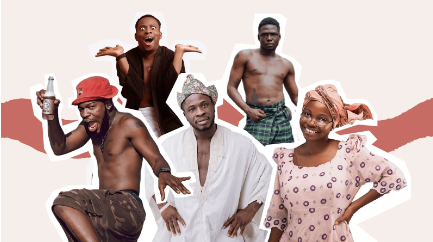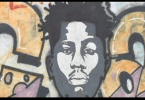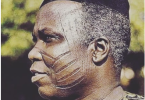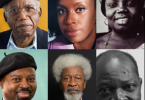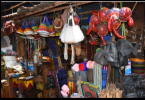Comedy is an art which had already been mastered for centuries perhaps, at the cultural level. In traditional Nigerian communities, eloquent men and women with extraordinary gifts in witty sayings were often hired to entertain people and anchor social functions. However, the ‘payment’ was often nothing significant in monetary terms back then. However, these village comedy exponents prepared the way for the future of Nigerian comedy. In fact, a number of modern Nigerian comedians inherited the wit and humor of their equally skilled parents. And now they have begun to cash out where their parents could not.
These village spokesmen (and women) were compensated with a mix of benefits which included foodstuff, all manner of gifts, and cash. Some were even honoured with chieftaincy titles.
How The Nigeria Comedy Industry was Birthed
The tradition of comedy performances was taken into Nigeria’s theater and film industry, as far back as in the 1950s. It birthed the first generation of Nigerian actor-comedians. Popular television acts, the likes of Zebrudaya, Baba Sala, Samanja, Aluwe, Jacob, Jagua, and Aderupoko (amongst others) became household favorites.
There was also Mazi Mperempe, a well-known comic radio personality who worked for Radio Nigeria and the defunct Anambra State Television in the 1970s. Thus these skilled comedians established themselves on popular mass media. However, much of their performances were driven by passion, as they did not receive significant earnings from their humour craft.
When the 1980s arrived, Gbenga Adeboye began to make waves on radio. He skillfully applied Yoruba proverbs and wordplay to create uproarious laughter. In fact, Gbenga Adeboye (now late) was the first-ever Nigerian comedian to earn international recognition. With his compendium of witty songs, hilarious wordplay, comedy skits, and multiple roleplay of funny characters mostly rendered in Yoruba language. Gbenga Adeboye was the anchor of a show on Radio Lagos named Funwontan, which practically became his trademark. It did not take long for the multi-talented Adeboye to become a local and international celebrity. He was a radio host, actor, MC, poet, producer, and musician up until the time of his death in 2003.
The Emergence of Standup Comedy in Nigeria
However, the Nigerian comedy industry ushered in the first few standup comedians in the 1980s. And one notable name was that of John Chukwu. Funny enough, John Chukwu was a contemporary of Ali Baba – the most popular standup comedian in Nigeria today. But Chukwu was not able to attain the celebrity status of either Ali Baba, or later exponents of Nigerian comedy.
But Alleluia Atunyota Akporobomeriere (aka Ali Baba) boldly came forth – who started out as a comedian in his university days. Ali Baba’s first comedy performance took place in 1988 at the (former) Bendel State University, Ekpoma. His earnings were negligible; but it did not stop him from promoting his trade over the years. When Ali Baba came to Lagos, he had perhaps a divinely arranged encounter with movie producer, Opa Williams along the line. Between Ali Baba and Opa Williams, the duo established the now lucrative standup comedy business in Nigeria. However, it was a tale of losses at the beginning. It took sheer determination for them to continue (especially Opa Williams), and eventually break through in the following years.
Opa Williams had an experience at the Orthopaedic Hospital in Igbobi, Lagos in 1994. A problematic project he carried out with some colleagues at the hospital site ended in continuous fits of laughter. Opa’s colleagues threw in one funny jibe after another to relieve the stress. It inspired him to create a platform for promoting budding comedy acts. Thus Opa Williams organized an annual comedy show called Nite of a Thousand Laughs in 1995, held at the University of Lagos. Coincidentally, Ali Baba (and Ayo Makun, Ali Baba’s erstwhile personal assistant) was one of the first set of standup comedians to be featured at the show.
The comedy event received wide acceptance but was a financial failure. Undaunted, Opa Williams hosted the second edition of the event in 1996 with some partners. It ended yet again in another loss; and his partners became very apprehensive. Opa Williams reported attempted to get some sponsors to support his comedy project, but they showed no interest. Industry colleague Zik Zulu Okafor recounted the one such experience in his book, Opa Williams: Father of Modern Comedy. In his words:
‘(Opa) had gone to an electronic company to seek sponsorship. The Indian man asked, “You want people to pay to come and laugh? Laugh is free my friend. Ok, come back in five years if you are serious,” he said, practically making a mockery of the idea. Ten years later, this same Indian would see him and say, “My friend, you are a great man. You are a man of great vision.” Although his company does not sponsor events, he gave Opa a N200,000 cheque and five television sets.’
A few years later, ‘Nite of a Thousand Laughs’ progressed into an annual show that attracted hundreds of humor seekers. But this time, it became more profitable, as a wider variety of new and upcoming comedians were drafted into the show. And visitors were now more willing to pay for an unforgettable night of entertainment and laughter, which profited the comedians this time. The show became the launching pad for many high-earning Nigerian comedy acts today. The list of successful standup comedians propelled into limelight by ‘A Nite of a Thousand Laughs’ is quite long and impressive:
Basketmouth, Okey Bakassi, Sam Loco Efe, Francis Duru, Mohammed Danjuma, Julius Agwu, Lepacious Bose, Klint da Drunk, Teju Baby Face, Holy Mallam, Boma Erekosima, AY Makun, Gandoki, I Go Die, Gordons, Bovi, MC Shakara, Princess, and scores of others.
Other modern promoters of standup comedy have arisen – the likes of IK Osakioduwa and his ‘Comedy Nites’. IK Osakioduwa has not only succeeded in bringing several new comedy acts into the Nigerian comedy industry. His comedy show is also regularly features on DStv. This has further exposed his comedy acts to a broader local and international audience.
Social Media Skits: The Latest Launching Pad for Nigerian Comedy
Modern social media comedy skits are known to go viral and gain the acceptance of millions of viewers in a short while. Platforms such as Instagram, Facebook, Tiktok and X, have several Nigerian comedy acts floating their skits regularly to gain followers. Thus, these new-generation comedians to use the platform to promote themselves. It has successfully launched scores of Nigerian comedians into popularity. The likes of Taooma, Josh2Funny, Crazeclown, Maraji, Sydney Talker, Wofai, Emmanuella, Brain Jotter, and scores of others.
Conclusion
The Nigerian comedy industry has become a huge money-spinning industry. The top ten comedians in Nigeria reportedly have net worths within the range of 3 million and 50 million Naira. It still does not come anywhere near what international comedy acts like Jerry Seinfeld (at 920 million US Dollars), are worth. Or others like Chris Rock, Kevin Hart, Amy Schumer, or Dave Chapelle.
Thus, there is still plenty of ground for the Nigerian comedy industry to cover. Most Nigerian comedians are yet to be recognized beyond the shores of Nigeria. An exception would be the likes of AY, Basketmouth, and a few others; who take their shows beyond Africa time and again.
However, there is no doubt that an internationally exposed media platform such as DStv offers great benefit. It has the potential to expose these comedy acts to a huge audience home and abroad. We are speaking of at least 1.5 million Nigerian homes (not counting the diaspora and international viewers) and should not be ignored.


